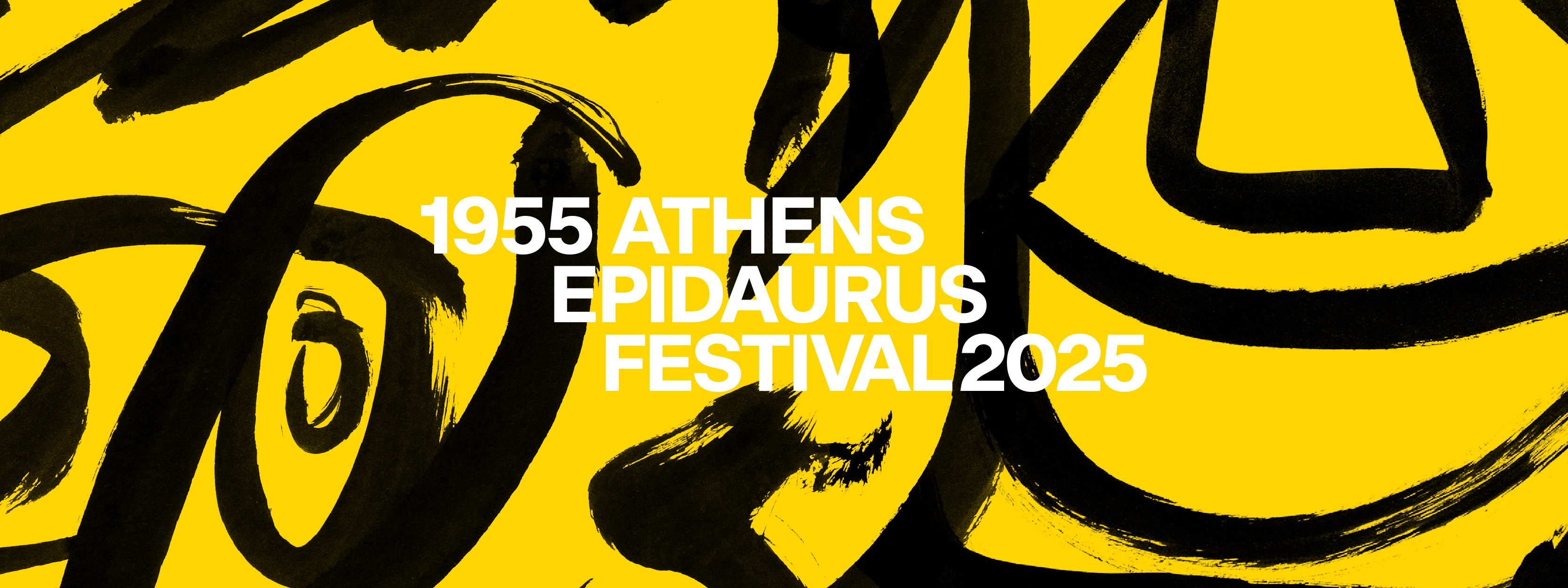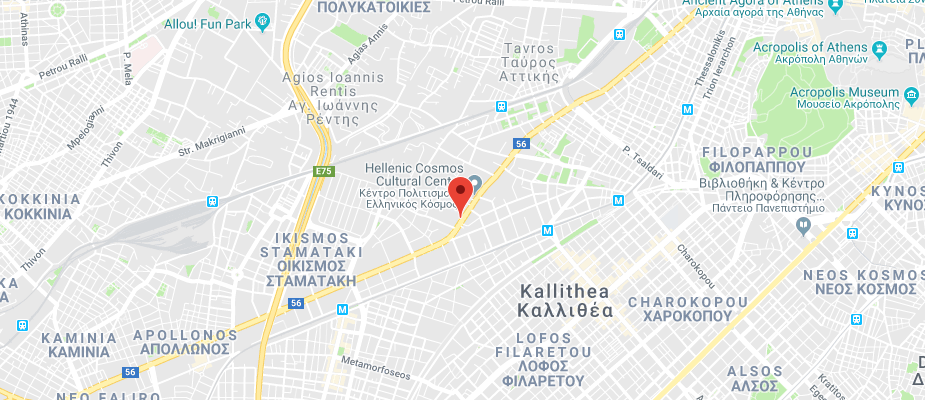Κύκλος συζητήσεων
Formidable Persistence
A series of public events and roundtables
Curated by Dimitris Papanikolaou

In conversation with ideas shaping contemporary artistic creation—ones brought to light through the 2025 Athens Epidaurus Festival programme—this year’s public roundtables will focus on the concept of persistence. Together with our invited speakers, we will address this notion of formidable persistence, both individual and collective, that we are witnessing in the face of hegemonic discourses, socioeconomic crises, and ecological ruination.
Persistence is not a synonym of resilience. Not simply the ability to adapt and survive, persistence is a constant act of creation and transgression. It implies articulation, the development of a language, and a poetics. It is a dramaturgy without a prearranged ending, conceived instead as an open field of possibilities.
Persistence, of course, can be used today to describe opposing tendencies. It characterises communities that alert us to the destruction of the planet or propose new ways of sharing ecological resources; at the same time, it can describe those who deny the existence of climate change. Feminist or social rights movements are inspired by strategies of perseverance and persistence; but equally persistent is the return of a reactionary agenda that promotes fear, intolerance, and the dismantling of rights.
These roundtable discussions avowedly take sides while they map the positive aspects of persistence as a liberational and critical discourse. Mindful of its opposite, for us “formidable persistence” recalls new forms of collective action and resistance, celebrating life in all its diversity. We use the concept to evoke lives demanding their right to have rights and to be treated as valuable; to evoke the body, striving over time to transform its experience into choreography; the archive, telling an “other” history. Let us rethink biography and autobiography, learning from artists and institutions that stage the fight against the logics of conformity and uniformity. Let us speak of the earth, as it persists in balancing human excess; about the time of the earth, as it stretches beyond the time of the human, the Anthropocene. We will equally reflect on the importance of housing and the right to a home, on living together, on the people who persist in returning—even to a destroyed house—to rebuild and remake. On the thoughtful stewardship of resources, on coexistence and symbiosis. We will speak about the everyday and the small, persistent, habits that sustain us. Last, but not least, we will bring to the fore the 70-year history of the Athens Epidaurus Festival, a cultural institution that persists in remembering the past while seeking new ways of expression through diverse modes of revival and survival. Persistence is also an act of weaving history—of seeing the past not as a series of fragments, but as networks that expand to the present. Persistence means thinking through genealogy.
What, then, gives persistence its ethical, aesthetic, and political meaning today? What makes it so vital? This will be the first question we pose at these four roundtables, which will bring artists featured in the Festival into dialogue with authors, academics, scientists, and public intellectuals.
PROGRAMME
Poetics / Persistence (1/6)
Peiraios 260 (Ε), at 19:00
In this opening session of the cycle, we discuss persistence as the driving force behind the forging of a language, a tone, as well as a certain type of artistic, social, critical, and/or political intervention. A “formidable persistence” can animate translation, direction, music as a language, dance, and the formulation of a body that takes the stage to express itself. This same “formidable persistence” is also essential to foster a framework of contact and intimacy, particularly when the latter encounters physical or social barriers, or when it is silenced or forbidden. In this light, our persistence in practices of care and mutual support—that is, to gather, participate, and convene—remains equally formidable, regardless of how outdated these may seem in the so-called “internet era.” As is our unwavering devotion to printed matter, journals, artist groups, manifestos, and collectivities.
In conversation:
Sofia Exarchou film director
Lenia Safiropoulou poetess and opera singer
Xenia Dania actress
Eva Pliakou publishing editor, co-editor of Vlavi magazine
Andreas Chatzidakis professor of Marketing and Consumer Culture at Royal Holloway University of London, member of the Care Collective
Francesca Zaccone translator and researcher at Sapienza University of Rome
Body, bios, biography (15/6)
Peiraios 260 (Ε), at 19:00
In the second session of the cycle, the focus turns to the triad of body, bios (“life” in ancient Greek), and biography. At the heart of those political processes that contemporary theory identifies as “biopolitics,” the body today serves as a site where techniques of power are being reproduced and refined, while at the same time it constitutes a laboratory where forms of response and resistance to these very techniques are actively being mapped. Perhaps it is for this reason that we have witnessed a pronounced turn in recent years toward biography and autobiography—not only in literature, but across multiple artistic and discursive fields. This broader shift towards the act of documenting the self (bio-graphy) signals a deeper persistence in reflecting not only on the lives that “matter,” but also on how certain lives are systematically condemned, excluded, and rendered invisible.
In conversation:
Patricia Apergi choreographer
Amalia Arseni actress, PhD in Modern Greek Philology, National and Kapodistrian University of Athens
Effie Giannopoulou translator and literary critic
Amalia Mouchtaridi singer-songwriter
Orestis Tzirtzilakis cultural studies researcher, University of Oxford
Marios Chatziprokopiou poet, translator, researcher, University of Thessaly
Post-human: The Earth in the age of techno-empire (19/6)
Peiraios 260 (B), at 19:00
How long will the Earth go on amending human excess? How close are we to pushing the planet beyond its breaking point, especially in recent years, with the rise of new communication technologies and artificial intelligence? What glimpses of the future flash in our minds when we contemplate the state of our planet, the evolution of the Human, the vision of utter dominance or the end of the world as we knew it? We are initiating this discussion with the understanding that what once was a slice of science fiction has now become a plausible scenario— substantiated not only by scientific analysis but also by the urgent calls of social movements demanding awareness and action.
In conversation:
Spyros Angelopoulos director
Stathis Arapostathis professor of History of Science and Technology, National and Kapodistrian University of Athens
Ioanna Bourazopoulou author
Alexandros Papageorgiou film critic
Yannis-Orestis Papadimitriou journalist
Anna Tzakou performer, director (Geopoetics Group), performance theorist
Politics of memory and mourning (29/6)
Peiraios 260 (B), at 19:00
In tandem with the presentation of Antigone (directed by Ulrich Rasche) at Epidaurus, the cycle of Formidable Persistence concludes with a discussion on the long-term political processes spurred by the politics of memory and mourning. The notions of grief and attending to memory are not confined to emotion—though they may encompass exasperation, pain, or eruption. They also imply persistence, alertness, irrational courage, ingenuity, methodology, and solidarity. Mourning does not simply belong to the realm of affect—it also articulates a demand. Likewise, memory is not merely a mental process, but a constant, often persistent, creative, and collaborative process. This discussion becomes more evident and pronounced nowadays as the hard-won gains of many movements rooted in mourning and the claim to memory are being threatened. And at the same time, it is also thrust in the foreground as we witness new forms of claim—premised on memory and mourning—asserting themselves with impassioned insistence.
In conversation:
Athena Athanasiou professor of social anthropology, culture theory, and gender studies, Panteion University of Athens
Eirini Aboumogli actress, sociology researcher, University of Crete
Dimitra Andritsou senior researcher, member of Forensis/Forensic Architecture Initiative Athens (FAIA)
Billie Mitsikakos philologist, researcher, University of Oxford
Vivian Stergiou author
Peiraios 260 (Ε)
- 01/06/2025 at 19:00
- 15/06/2025 at 19:00
Peiraios 260 (Β)
- 19/06/2025 at 19:00
- 29/06/2025 at 19:00
MEDIA KIT / PHOTOS
all events
Opera | Theatre | Dance | Premiere | Greek Debut
Ancient Theatre of Epidaurus | Peiraios 260
all venues


